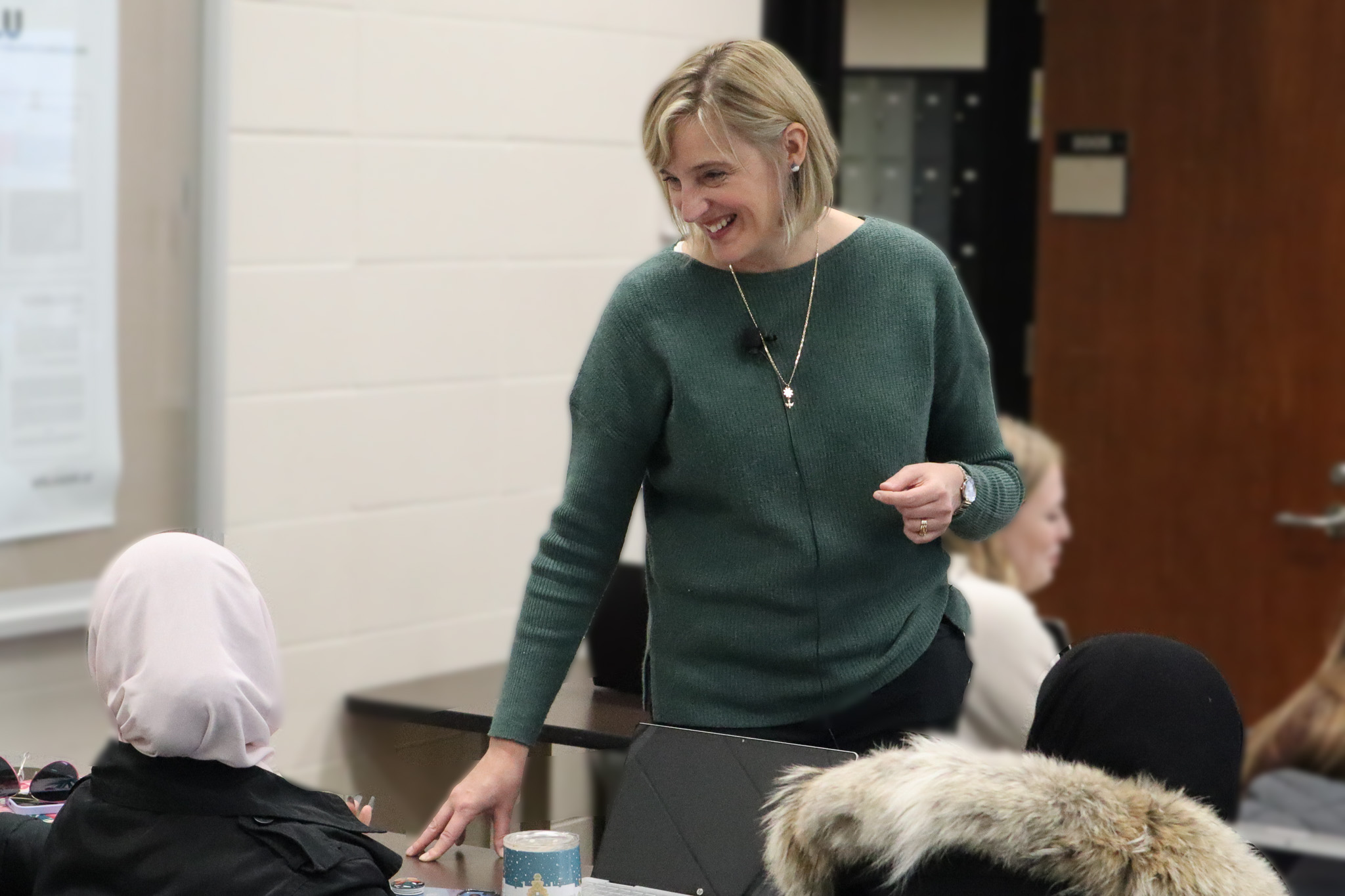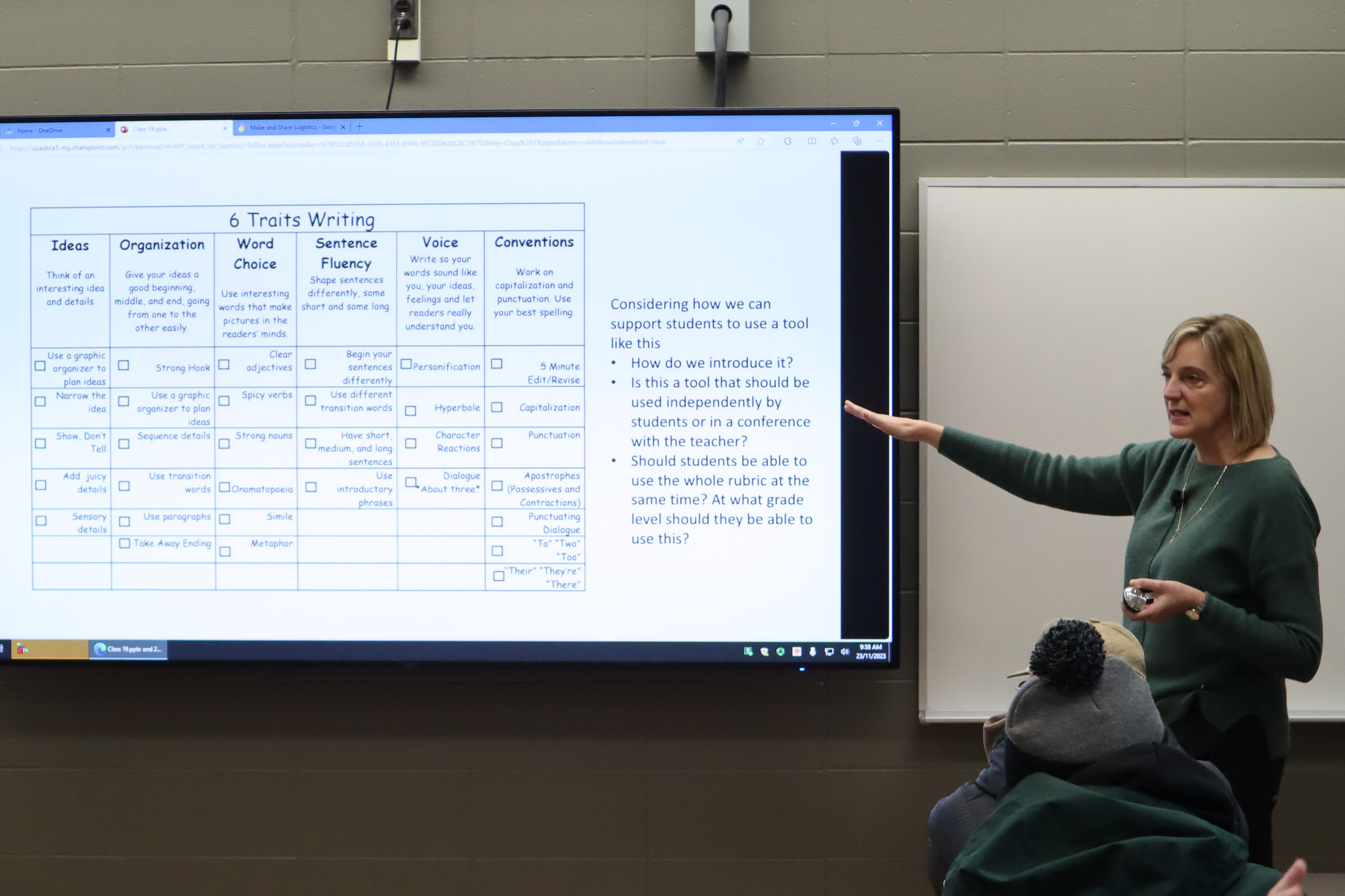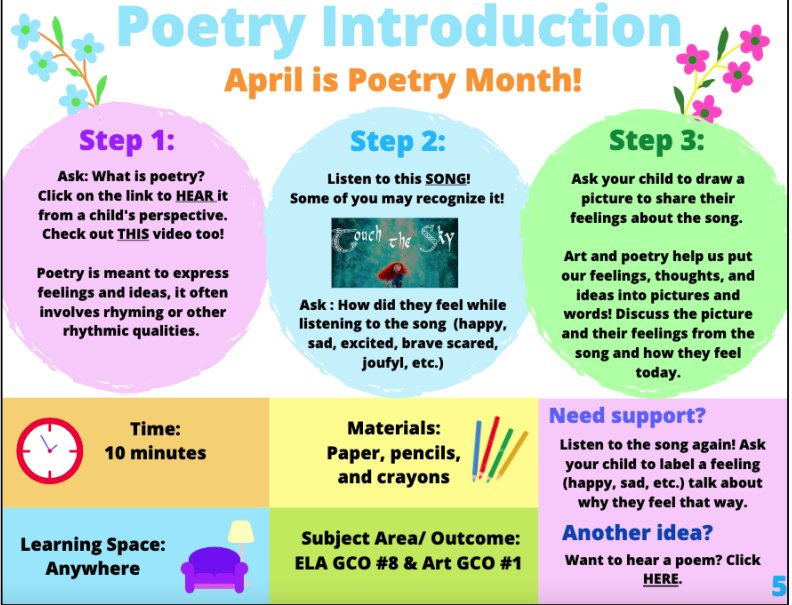
Pedagogy as a resource for hope: new faculty member’s research focuses on expanding literacies learning opportunities
Dr. Lori McKee (PhD) is one of the newest faculty members at the College of Education
By Connor JayMcKee was appointed associate professor in the Department of Curriculum Studies on July 1, 2023. She was most recently an assistant professor at St. Francis Xavier University.
McKee’s research is focused on English Language Arts and the different intersections of literacies pedagogy and teacher professional learning. She gained interest in these areas during her 20 years teaching in early elementary classrooms in Ontario.
“As I was teaching, I became very interested in the different ways that kids were learning to read and write,” reflected McKee. “I became aware of how the students were learning differently and I realized I needed to learn more so that I could teach differently. This is what led me to graduate studies.”
Through her graduate studies at Western University, McKee gained a deeper understanding of her own pedagogies in relation to the literature which led to her passion of helping other teachers grow in(to) their practice.
“Understanding pedagogy is really at the heart of my program of research. I want to help teachers understand more about the work they are doing in literacies instruction, so that they can help their students,” she said. “The professional learning piece in my research is about equipping and supporting teachers. Through my partnerships with literacies scholars across Canada, I am able to provide valuable resources and avenues of knowledge for my own students as well as teachers nationally and internationally. I am grateful to be a part of a number of research teams that enable me to do this work.”
Since McKee continued to teach while pursuing her master’s (MEd’13) and doctoral (PhD’18) degrees, she was able to apply her research directly into her practice. She realized her work grew through strong connections between theory and practice. Her teaching, research and service continue to be synergistic and generative to each other.
“When I teach my courses in English Language Arts, it helps me get ideas for my research. When I research, it actively feeds back into my teaching,” said McKee. “I am not only able to make contributions to the academic literature, but also to teachers in practice. To me, it’s very important to have a multi-stream dissemination process.”

McKee made the move from teaching five- and six-year-olds to teaching university students full-time in 2018. McKee explains, “My heart is always with teachers and children in classrooms. It was very hard to leave my classroom and go to an academic position.” However, McKee recognized that her switch to teaching in higher education at St. Francis Xavier University provided new opportunities to share her knowledge and research with preservice and inservice teachers. Although some may see the large difference in age for students as challenging, she accepted the newly acquired task with grace.
McKee sees some similarities across age groups, “All people want to have a degree of predictability. They want to be challenged; they want support. They want to know that somebody is going to be in charge, but also let them be who they are,” said McKee. “When you zoom out on the big principles that underpin teaching, they are the same, whether they're little children or they're adults. The delivery is very different.”
The pandemic highlighted a need for fluid and responsive pedagogies, and McKee’s research focused on these movements. For example, one of McKee’s research articles focuses on providing guidelines for offering virtual early childhood programming for young children and their families oriented through an equity, diversity, inclusion, and decolonization (EDID) framework. Another research study highlighted this notion as her preservice teachers in Nova Scotia were navigating social isolation and an unpredictable future alongside planning for students they would never see or work with because of the province’s restrictions. Although there were barriers, her preservice teachers were able to adapt and reimagine and redesign the delivery of materials. One of McKee’s research articles showcases preservice teacher, Marie, and her innovative lesson plan.
“Marie created an infographic of learning activities for parents to share with their kids in a very accessible way during the pandemic school closures,” said McKee. “Marie’s work became the impetus for the research study. She had done something that far surpassed what we could have asked her to do. It caused us, as teacher educators and researchers, to think about past practices, in terms of lesson planning and teaching, that might not be supportive in a new context.”
What became prevalent during the pandemic was the need for a stronger relationship between teachers and parents. The research prompted McKee to rethink how to facilitate the lesson plan for parents who were already working full-time and with a greater responsibility of educating their children.
“The partnership between parents and teachers had to shift,” explained McKee. “Questions that arose were, in the emergency context, who is the lesson plan for? Is it for me, the teacher, or is it for the parent? I didn't want to direct the parent’s time and homelife as they were also working full time, had kids underfoot and had to support their children’s schooling during school closures. Parents and teachers needed to work together in new ways.”
As McKee noticed movement within the education world, she also reflected on her own journey thus far. She’s grateful for the enriching experiences she had in Ontario and the five years spent in Nova Scotia.
“There are different curricula and practices in the provinces I have worked in. This move and time of transition opens spaces for reflecting on my pedagogy and considering what my role in research is. I've researched in daycare centers, classrooms, intergenerational settings, nursing homes, [and] in teacher education and I look forward to being responsive in my program of research to the Saskatchewan context.”
Currently, McKee is instructing preservice teachers in various English Language Arts curriculum studies courses. In addition to her instruction, she is a co-investigator on Reading Pedagogies of Equity: Networked Literacy Pedagogues as Resources for Academic Reading Praxes in Teacher Education. This Social Sciences and Humanities Research Council (SSHRC)-funded Insight Grant “offers university instructors professional learning opportunities in how and why to address equity issues of academic reading in their classrooms”. The pan-Canadian research includes academic researchers as well as an atelierista, who is an arts-based educator, and an Indigenous knowledge keeper.
“The research group is working with teacher educators to help them think with reading and pedagogies of equity,” explained McKee. “In teacher education, even though we have students who can read, the way that we ask them to read in higher education is different. Therefore, every teacher is a teacher of reading. The study is about professional learning with teacher educators so that they can have a sense of what they are asking teacher candidates to do in reading and how it is a matter of equity.”
As the educational landscape will continue to shift, in her roles as educator and researcher, McKee wants her students to develop flexible and adaptive skill sets so they can navigate and make decisions within the context of literacy teaching. She talked about the key word of “hope” as the foundation.
“We have been constrained within our teaching and learning, especially during the last few years. We have had to relearn a lot of things in the world of elementary literacies education. Specifically, there is a narrative of ‘learning loss’ that is very prevalent due to the pandemic and there is a call to teachers to compensate for that learning loss. That can be a very hard context to teach within, especially for preservice teachers. But if we dwell there, it's not very hopeful. So, I think we need to be thinking about hope.”
One way that McKee is thinking about hope is through her pedagogies. She is a co-editor in a special issue within Pedagogies: An International Journal entitled “School pedagogies as resources for hope”.
“When thinking about what the world needs, my answer is hope. Through my service to the academic community, and together with my co-editors, we're creating this outlet for people to publish about hope and saying, ‘Pedagogies can be resources for hope.’ They can build on the strengths of learners and support joyful and expansive learning opportunities. The journal shows how and what hopeful pedagogies can look like around the world.”
